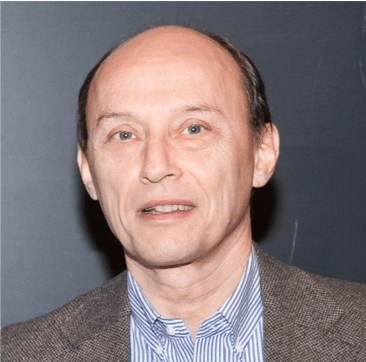Leslie Greengard-2018-09-28



SEMINAR INFO
September 28, 2018
■
Memorial Hall
Room 127
■
10:00am – 11:00am
PRESENTING: LESLIE GREENGARD
Courant Institute of Mathematical Sciences,
New York University
ADAPTIVE METHODS FOR THE SIMULATION OF
DIFFUSION IN COMPLEX GEOMETRIES
We will review the state of the art in integral equation methods for the solution
of the heat equation in moving geometries. With suitable fast algorithms, such methods achieve optimal complexity and, in the homogeneous case, require the discretization of the space-time boundary alone. They achieve high order accuracy with suitable quadratures and are straightforward to implement adaptively in space-time. We will discuss applications to biophysical modeling, reaction-diffusion systems, and computational fluid dynamics.
BIOGRAPHY
Dr. Leslie Greengard received his B.A. degree in Mathematics from Wesleyan University in 1979, and his Ph.D. degree in Computer Science and M.D. degree from Yale University in 1987. From 1987-1989 he was an NSF Postdoctoral Fellow at Yale University and at the Courant Institute of Mathematical Sciences, NYU, where he is a member of the faculty. He served as the Director of the Courant Institute from 2006-2011. Greengard is also Professor of Electrical and Computer Engineering at NYU’s Tandon School of Engineering and the Director of the Center for Computational Biology at the Flatiron Institute, a division of the Simons Foundation.
Greengard, together with V. Rokhlin, developed the Fast Multipole Method (FMM) for problems in gravitation, electrostatics and electromagnetics. For their work, in 2001 they received the Steele Prize from the American Mathematical Society. Much of Greengard’s research has been aimed at the development of high-order accurate integral equation based methods for partial differential equations in complex geometry. He was elected to the National Academy of Sciences and the National Academy of Engineering in 2006 and to the American Academy of Arts and Sciences in 2016.
